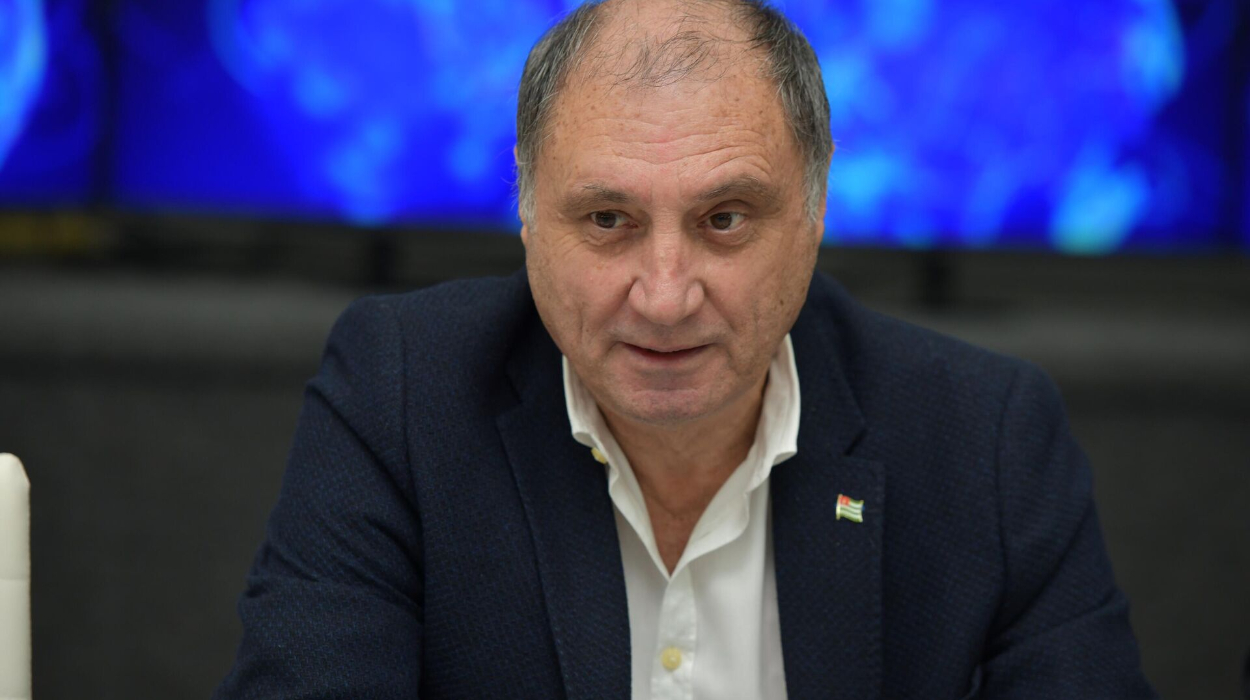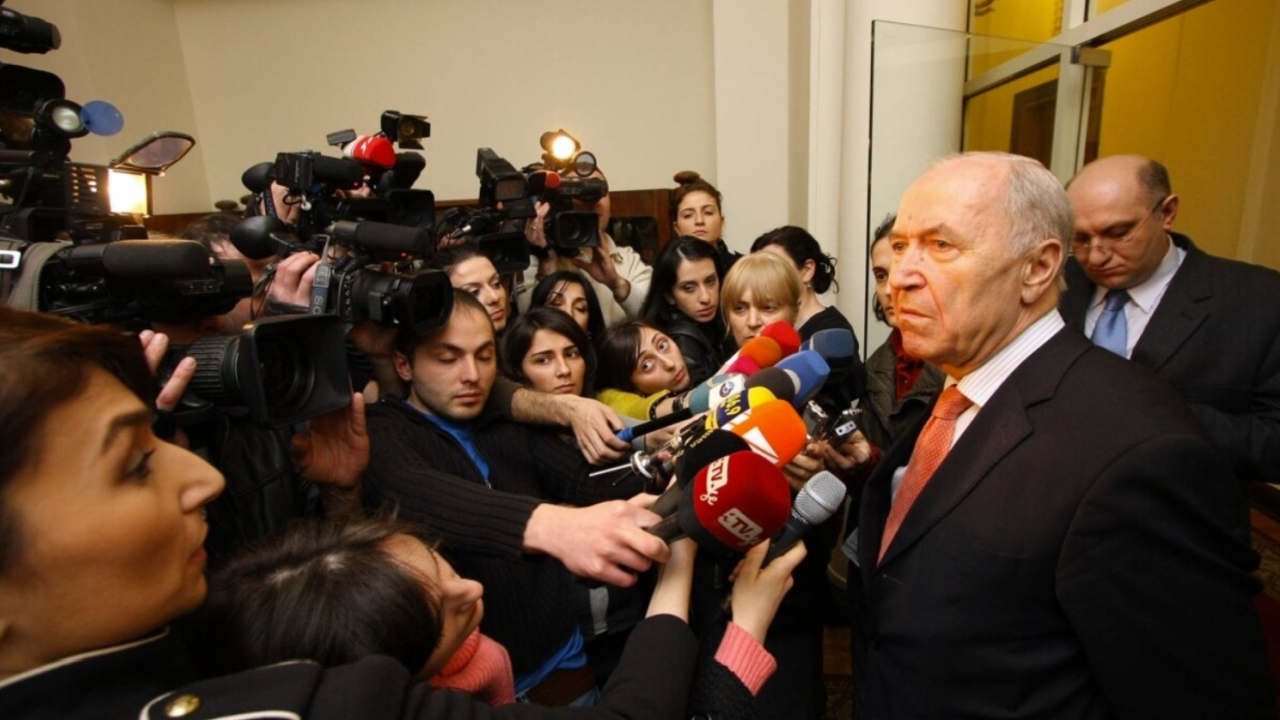Remembering Dieter Boden: A Diplomat with a Deep Understanding of Abkhazia

Dieter Boden, a dedicated diplomat remembered for his contributions to peace and understanding.
Recently, we received the sad news of the passing of German diplomat Dieter Boden, former Special Representative of the UN Secretary-General for the settlement of the Georgian-Abkhazian conflict. The Minister of Foreign Affairs of Abkhazia, Sergey Shamba, shared his memories of him with an ApsnyPress correspondent.
Dieter Boden was not only a distinguished diplomat but also a valued contributor to AbkhazWorld.com. He provided insightful commentary and authored several articles dedicated to Abkhazia. Additionally, he was one of the contributors to the book Abkhazia: 1992-2022, published by AbkhazWorld, with his article titled Negotiating a UN Peace-Deal between the Abkhazians and the Georgians – the Failed Initiative of 2001/2. His work and analysis have left a lasting impact on the discourse surrounding the Georgian-Abkhazian conflict.
AbkhazWorld extends its deepest condolences to Dieter Boden’s family, friends, and colleagues. His contributions to the understanding of Abkhazia’s history and diplomacy will be remembered with great respect.
This interview was first published by ApsnyPress and has been translated into English by AbkhazWorld.
Sergey Shamba on Dieter Boden: A Highly Professional Diplomat

Sergey Shamba, The Foreign Minister of Abkhazia.
– Mr Shamba, you knew Dieter Boden well, didn’t you?
– Yes, he was a highly professional diplomat. I had many opportunities to witness his exceptional qualifications and outstanding personal qualities. It was deeply saddening to learn of his passing. Unfortunately, the news reached us belatedly, and we were unable to express our condolences to his family in a timely manner.
– Dieter Boden was one of the few diplomats who expressed sympathy towards Abkhazia and openly spoke about it on multiple occasions. How did he reconcile this with the necessity of advocating a policy opposed to the independence of our republic?
– Our positions on resolving the Georgian-Abkhazian conflict were indeed fundamentally different. He was fulfilling his mandate, while we were defending our own standpoint. Nevertheless, his genuine sympathy for our country and people was evident.
+ Dieter Boden: 'Abkhazians are Europeans'
+ Abkhazia's recent election: a considered view from an experienced outsider, by Dieter Boden
+ 27 years since the beginning of the war between Georgia and Abkhazia, by Dieter Boden
+ Dieter Boden: stiff resistance came from the Georgians
– What helped you establish a good personal rapport with Boden?
– During his visits to Abkhazia, we had not only official meetings but also informal gatherings, such as in rural settings over a traditional feast, where he would drink wine from a horn. He had a strong command of the Russian language and was a specialist in Alexander Pushkin’s works, knowing many of his poems by heart. These aspects played an important role in fostering a connection on a personal level.
– In Abkhazia, his proposal on the ‘Distribution of Powers between Tbilisi and Sukhum’ is well known, yet it was entirely unacceptable to us. Did this complicate your relationship with him?
– Despite our fundamental differences, we were able to communicate without difficulty after negotiations. I recall how he invited me to the UN Mission’s residence on one of his days off. We discussed his proposal in the kitchen while he was cooking spaghetti. I firmly stated that Abkhazia would not even consider the document. He smiled and replied that the decision ultimately depended on Moscow—whatever Moscow decided, that is what would happen.

In 2012, the Georgian government declared Dieter Boden a persona non grata and an enemy of their statehood, restricting any official cooperation with him.
+ Time To Turn Crisis Into Stability? By Dieter Boden
+ Power Play and Tragedy in the Caucasus: Analysing the Outcomes of the Karabakh Conflict, by Dieter Boden
+ Some lessons to be learnt from the Karabakh war, by Dieter Boden
+ Potsdam University professor Dieter Boden in Abkhazia on AGU Invitation
– How were you able to prove otherwise?
– Some time after our conversation, Russian diplomat Valery Loshchinin visited Abkhazia. At one point, he served as Deputy Foreign Minister of Russia and as the President’s Special Representative for the settlement of the Georgian-Abkhazian conflict. During a meeting in Vladislav Ardzinba’s office, Loshchinin made an unsuccessful attempt to persuade us to consider Boden’s plan. Ardzinba remained completely resolute on the matter, and thus, the proposal never progressed beyond that point.
– After Dieter Boden stepped down from his position, he visited Abkhazia several times in a private capacity. What was his stance then?
– After Kosovo’s independence was recognised, he stated that he supported Abkhazia’s independence. I distinctly remember his words: ‘Is it fair to deny the Abkhazians what the Kosovars have already attained?’
– Based on your extensive experience in foreign policy, what advice would you give to young diplomats?
– I firmly believe that diplomacy is most effective when normal human relationships are maintained. We fully understand that diplomats operate within predefined mandates, and no one is inclined to make concessions, at least on key issues. Under such circumstances, it is essential to find alternative points of engagement to prevent further escalation of crises and their descent into armed conflict. The primary objective of our Ministry of Foreign Affairs before Russia’s recognition of Abkhazia’s independence in 2008 was, if I may put it this way, to buy time, strengthening our military and economic positions. That was our focus.